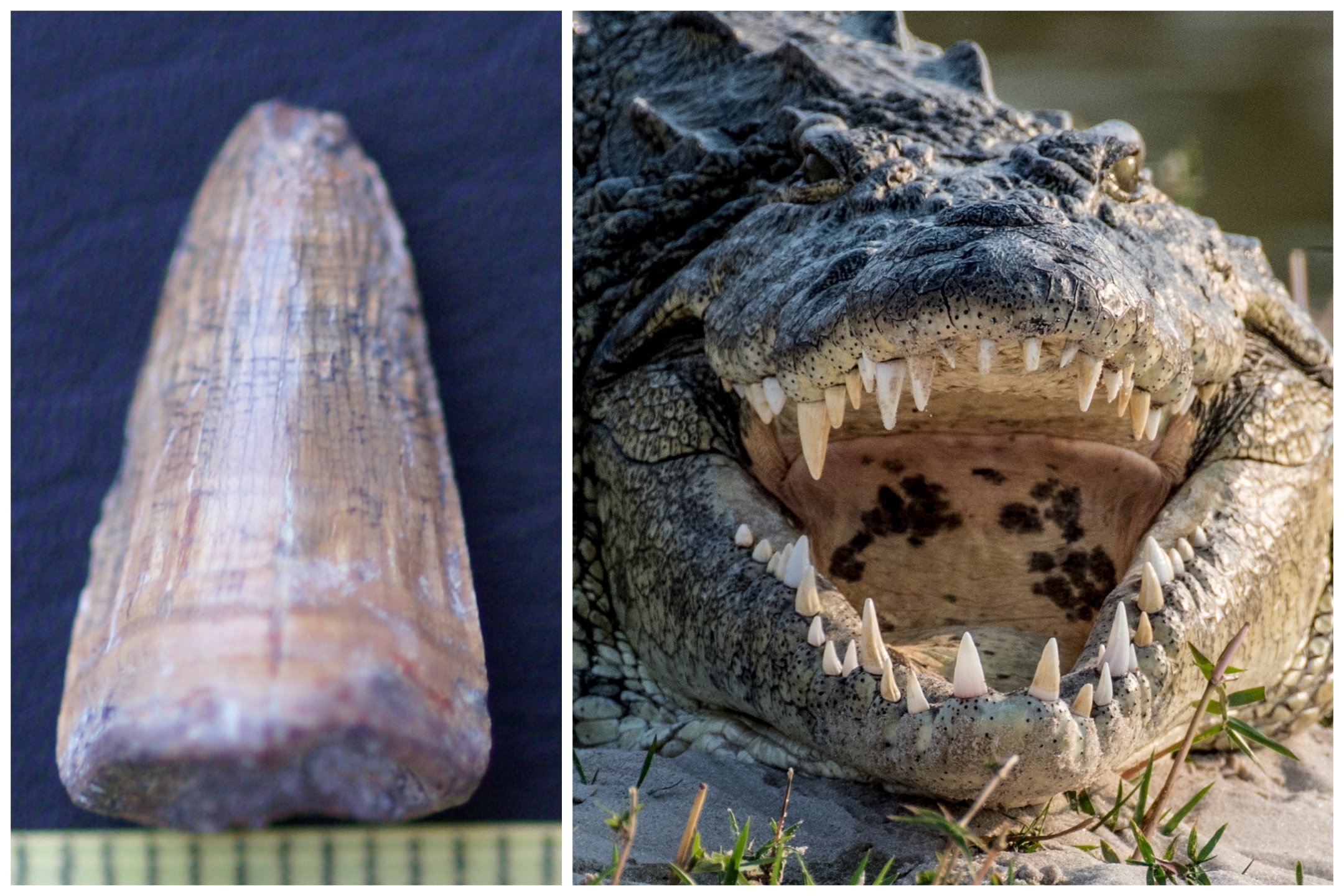Researchers have uncovered hundreds of ancient animal fossils from more than 4 million years ago, including the remains of what they believe may have been the “last crocodile” in Europe.
The discoveries came during excavations that began in September at the “Baza-1 site” in the province of Granada in southern Spain, the Catalan Institute of Human Paleoecology and Social Evolution (IPHES) announced in a press release.
The site was discovered in 1996, but it was not until 2000 and 2001 that systematic excavation work resumed. During these excavations, researchers recovered more than 2,000 fossils in an area no larger than about 320 square feet.
Now, a team of paleontologists has uncovered more than 500 fossils of large and small vertebrates at the site. The bones are around 4.5 million years old and in an excellent state of preservation, according to the researchers.
Among the remains are those of mastodons—an extinct type of elephant-like mammals—rhinoceroses, two species of horse, bovids of various sizes, large and small deer, pigs, large carnivores and turtles.
Sifting through sediments extracted from the site also revealed the presence of numerous small mammal remains, including those of rodents, rabbits and shrews; various amphibians; reptiles; and fish, as well as a large quantity of wood and plant remains.
But perhaps the most intriguing fossil that the team found was the tooth of a crocodile—the first to be uncovered at Baza-1. The researchers said that the tooth represents a crocodile species of African origin and that this is the only discovery of its kind in the European fossil record from this period. This suggests that it was the last crocodile species to be found on the Continent.
“This is a species of crocodile of African origin that arrived in the Iberian Peninsula crossing an arm of the sea just before the Mediterranean dried up during the Messinian salinity crisis, just over 6 million years ago,” Bienvenido Martínez Navarro, the IPHES’s co-director of the excavation, said in the press release. “It is most likely the last crocodile in Europe.”
The Messinian crisis was a geological event that occurred roughly 6 million to 5.3 million years ago. During the event, the Mediterranean Sea became disconnected from the Atlantic and large swaths of it dried up, leaving behind highly salty remnants that were inhospitable to life.
It is theorized that the crisis eventually came to an end with an event known as the Zanclean flood, which refilled the Mediterranean basin and reconnected the sea to the Atlantic.
The researchers are hoping that analysis of the fossil discoveries at Baza-1 will enable them to reconstruct the ancient environment of this fossil site.
To date, the evidence uncovered at the site indicates that it was dominated by a tropical/subtropical climate—characterized by high temperatures and abundant rainfall—and an ecosystem consisting of large forests and some open areas where herbivores, such as three-toed horses, grazed.

